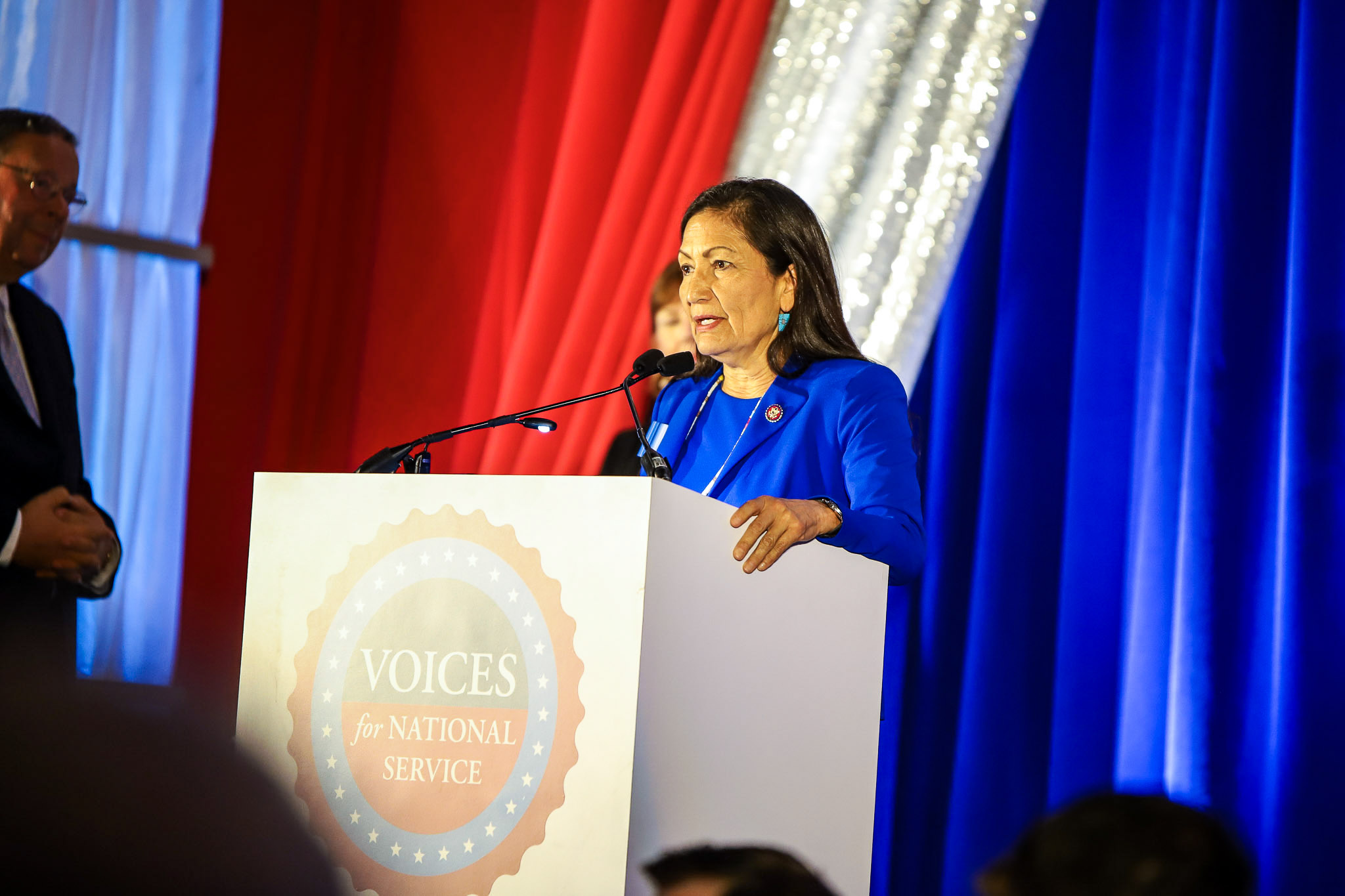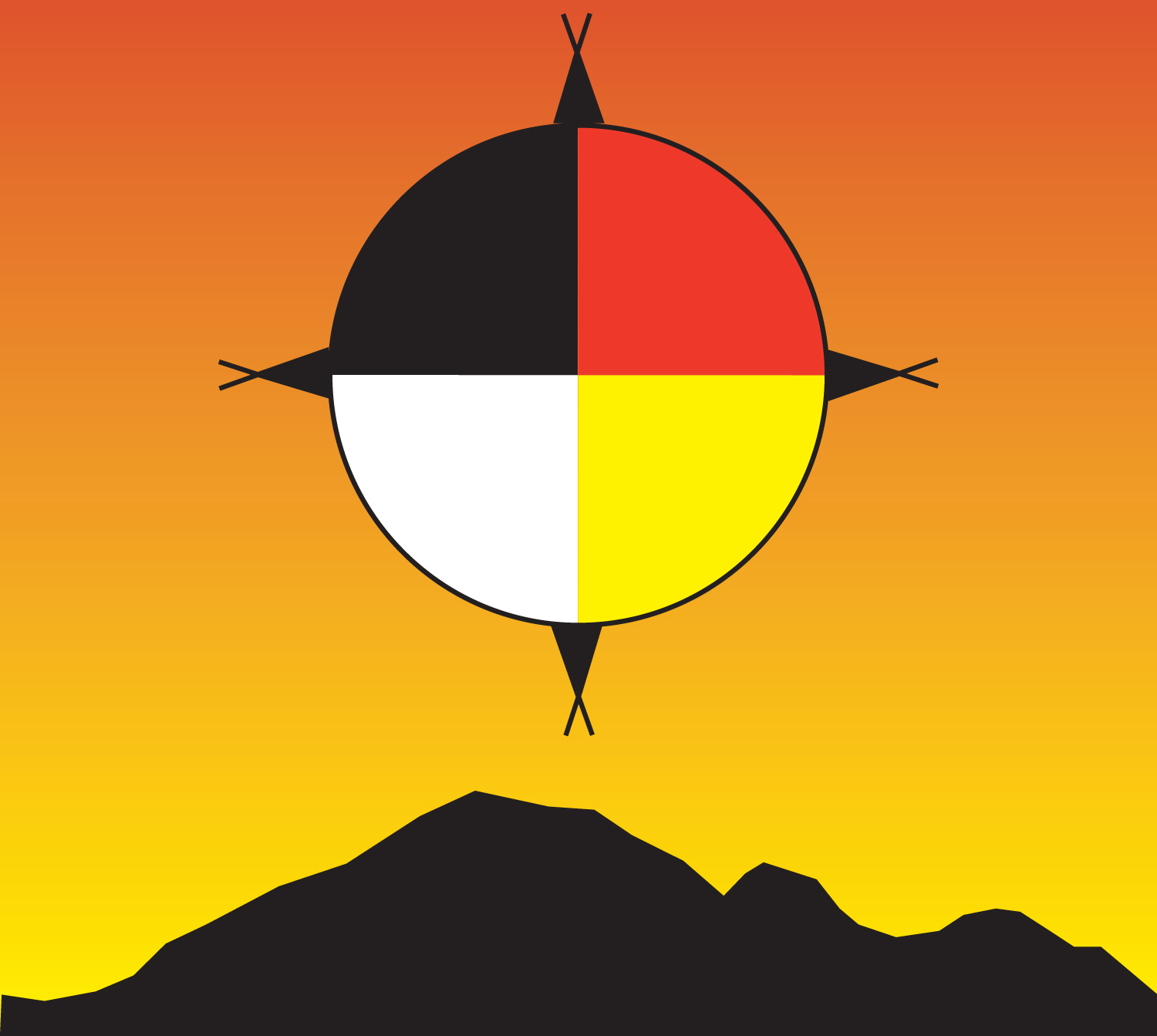Indianz.Com > News > Native Sun News Today: Rep. Haaland seeks Broadband for All

Native lawmaker introduces ‘Broadband for All’
Native Sun News Today Health & Environment Editor
• Broadband For All:
Bill Text |
One Pager |
Endorsement List
WASHINGTON – The Federal Communications Commission offer to give tribes complimentary licensing of broadband falls short of the incentive needed to provide equal access for Native and other rural constituencies, sponsors of the “Broadband for All Resolution of 2020” said in introducing the legislation to Congress on September 23.
“Everyone in this country deserves access to reliable high-speed internet, especially during a pandemic, but I’ve heard from families in my district and across the country that internet is too expensive or completely unavailable to them and the FCC hasn’t taken the right steps to connect everyone no matter their background or where they live,” said Pueblo Indian U.S. Rep. Deb Haaland.
The resolution [H.Res.1144] declares, “limiting access to broadband internet is a human rights violation.” It aims “to reaffirm basic civil and human rights protections so all people — especially low-income households, people of color, and those living in rural areas or on tribal lands — can access reliable broadband internet for basic daily activities,” according to its authors.
Haaland said it “will make sure kids don’t fall into the homework gap, workers can telework, families have access to telemedicine, and everyone can reach important information when they need it.” A representative from New Mexico, Haaland is one of the first two Native American women elected to Congress. Sharice Davids of Kansas is the other. California Rep. Ro Khanna, who joined Haaland to introduce the legislation, said internet access “should be a human right.” Despite the FCC’s mandate to increase broadband access, it has still failed to make it affordable, much less universal. That needs to change.” The U.N. Human Rights Council passed a resolution in 2016 calling on countries to bridge the digital divide. According to the authors of the Congressional bill, the U.N. action “raised global awareness that internet is not only a luxury, but a necessity that must be protected to defend freedom of expression, freedom of speech, and basic global human rights standards since technology has become a modern global necessity.”Broadband internet is critical to ensuring kids can do their homework, workers can telework, families have access to telemedicine, and everyone has access to information. Today, @RepRoKhanna & I introduced the #BroadbandForAll resolution.https://t.co/SjscHoOOKc pic.twitter.com/Lx0giozfAn
— Rep. Deb Haaland (@RepDebHaaland) September 24, 2020
NATIVE SUN NEWS TODAY
Support Native media!
Read the rest of the story on Native Sun News Today: Native lawmaker introduces ‘Broadband for All’
Contact Talli Nauman at talli.nauman@gmail.com
Note: Copyright permission Native Sun News Today
Search
Filed Under
Tags
More Headlines
Native America Calling: A sample of Native Guitars Tour 2024
Native America Calling: How Native literature is changing the mainstream narrative
Native America Calling: No ordinary animal
Native America Calling: Safeguards on Artificial Intelligence
NAFOA: 5 Things You Need to Know this Week
Chuck Hoskin: Cherokee Nation takes the lead for our environment
Native America Calling: Earth Day assessment for Native peoples
Cronkite News: Gathering addresses ‘epidemic’ among Native people
VIDEO: Cody Desautel on tribes and federal forest management
AUDIO: Legislative Hearing on Discussion Draft of Forest Management Bill
Native America Calling: Remembering the 1974 Navajo border town murders
Native America Calling: Can the right approach close the Native immunization gap?
Cronkite News: Long COVID cases remain high in Arizona
Native America Calling: Eyes in the sky for development, public safety, and recreation
Native America Calling: Three new films offer diverse views of Native life
More Headlines
Native America Calling: How Native literature is changing the mainstream narrative
Native America Calling: No ordinary animal
Native America Calling: Safeguards on Artificial Intelligence
NAFOA: 5 Things You Need to Know this Week
Chuck Hoskin: Cherokee Nation takes the lead for our environment
Native America Calling: Earth Day assessment for Native peoples
Cronkite News: Gathering addresses ‘epidemic’ among Native people
VIDEO: Cody Desautel on tribes and federal forest management
AUDIO: Legislative Hearing on Discussion Draft of Forest Management Bill
Native America Calling: Remembering the 1974 Navajo border town murders
Native America Calling: Can the right approach close the Native immunization gap?
Cronkite News: Long COVID cases remain high in Arizona
Native America Calling: Eyes in the sky for development, public safety, and recreation
Native America Calling: Three new films offer diverse views of Native life
More Headlines
